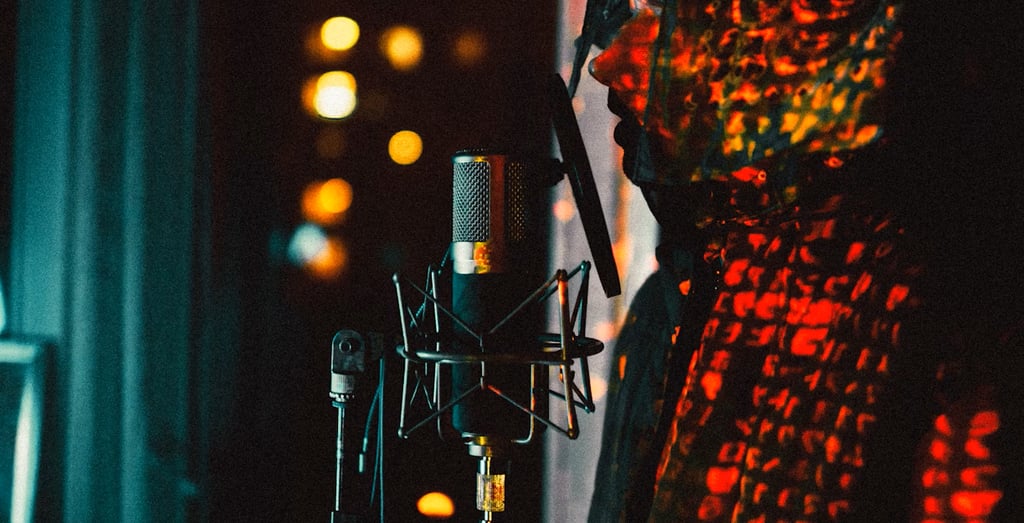The Rise of Voice Generators: Will We Still Need Vocalists?
Dive into how AI voice models (like OpenAI’s Jukebox or voice cloning tools) are impacting vocal production, both creatively and ethically.
EXPLORETECHNOLOGY
Servo Sapiens


In the ever-evolving world of music production, artificial intelligence is taking on roles once thought to be uniquely human. One of the most fascinating—and controversial—advancements is the rise of AI voice generators. Tools like OpenAI’s Jukebox, Synthesizer V, Vocaloid, and various voice cloning technologies are now capable of producing realistic vocal performances without a human singer in the room.
But as these tools grow more powerful, many are asking: Will we still need vocalists in the future?
Let’s break down how these technologies work, who’s using them, and what this could mean for the future of music.
What Are AI Voice Generators?
AI voice generators are software tools that use machine learning to create vocal sounds that imitate human singing. Some are trained on real singers’ voices, while others allow you to craft entirely new ones.
Here are a few key players in the space:
Vocaloid
Vocaloid, developed by Yamaha, is one of the oldest and most iconic singing synthesis engines. It allows users to input melodies and lyrics, which are then sung by virtual singers like Hatsune Miku or Megurine Luka. Vocaloid helped launch an entire genre of J-pop and electronic music where virtual idols are the stars.
Synthesizer V
Synthesizer V (by Dreamtonics) offers more realistic and expressive vocal performances. It supports multiple languages and lets users control vibrato, pitch, and tone in fine detail. Some of its voicebanks are so lifelike that they rival real singers in emotional depth and clarity.
OpenAI’s Jukebox
OpenAI’s Jukebox goes a step further—generating raw audio, including instrumental and vocal parts, in the style of known artists. It's still experimental, but it demonstrates how neural networks can learn the style, phrasing, and timbre of famous singers.
Voice Cloning Tools
Voice cloning software can replicate a real person’s voice after being trained on samples. This is used both for creative purposes and for deepfakes—raising ethical concerns about consent and identity.
How Artists Are Using Voice AI
AI voice technology isn't just for bedroom producers—big names are experimenting with it too.
Popular Artists Using AI Vocals
Holly Herndon: An avant-garde electronic musician who created a digital twin of her voice called “Spawn,” used in her album PROTO.
Grimes: Has publicly endorsed AI voice cloning and even announced she would allow anyone to use her AI voice for music creation (with revenue splits).
David Guetta: Made headlines by using AI-generated vocals in the style of Eminem during a live show.
Porter Robinson: Has explored AI vocals as part of his hyper-emotional, synthetic music aesthetic.
Meanwhile, countless indie producers and hobbyists are using tools like Vocaloid and Synthesizer V to bypass the need for a singer entirely—especially helpful if you’re a solo artist or on a tight budget.
The Creative Upside
AI voice tools can be game-changers for creativity:
🎧 No singer? No problem. You can still add compelling vocals to your track.
🌐 Language barriers vanish. Want vocals in Japanese, Korean, or Mandarin? Tools like Synthesizer V make it easy.
🧪 Experimentation. Create voices that don’t exist in real life—genderless, ageless, or entirely fantastical.
These tools open new doors, especially for independent musicians and electronic producers looking for unique vocal textures.
The Ethical Dilemma
But with great power comes great responsibility.
Consent & Ownership: Using a cloned voice of a real singer without permission? That’s a legal and moral minefield.
Job Displacement: If AI voices get too good, will session singers and vocalists lose opportunities?
Identity Theft: As voice cloning becomes more accessible, impersonation risks rise—especially for celebrities and public figures.
Some platforms are already tightening their rules. Labels and artists are negotiating how and when AI-generated content can be used, especially when money is involved.
Final Thoughts: Will We Still Need Vocalists?
Yes—but the role will evolve.
AI voice generators are incredible tools, but they can’t fully replace human emotion, live performance, or the connection that real singers bring. At least, not yet. Think of these tools as new instruments—much like synthesizers in the 1980s. They didn’t kill music; they changed it.
For producers, they’re a powerful option for exploring new sonic territory. For vocalists, they’re a reminder to keep growing, innovating, and collaborating with technology rather than fearing it.
In the end, the future of vocals isn’t about man vs. machine—it’s about the harmony between them.
© Servo Sapiens 2025. All rights reserved.